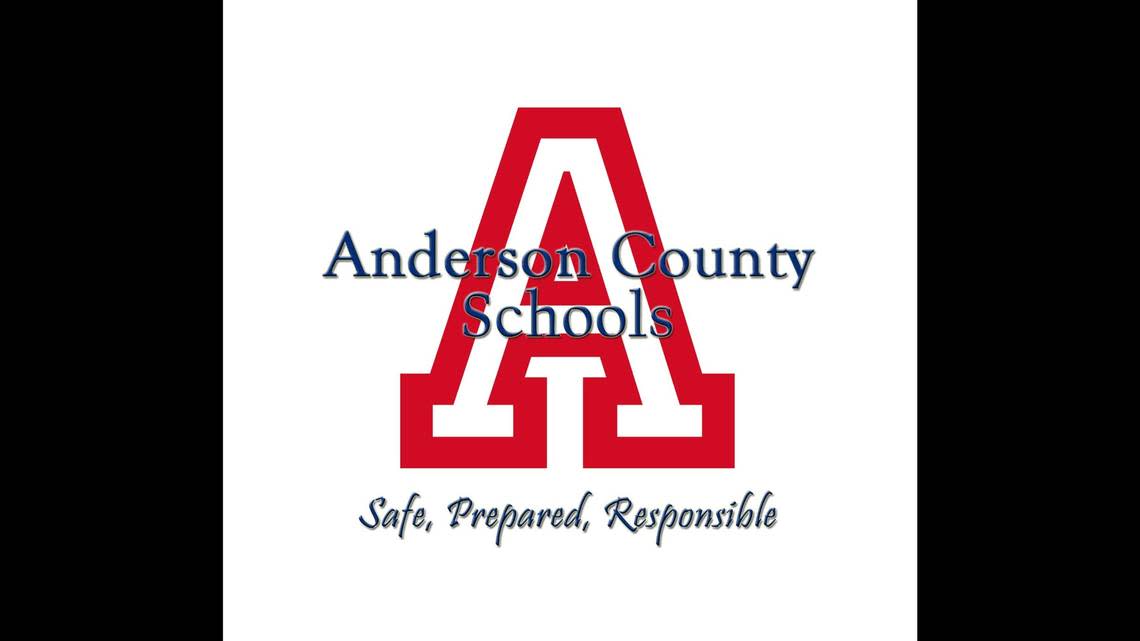KY principal who questioned state guidance on student pronouns suspended after complaint

The principal of an Anderson County alternative school has been suspended after a discrimination and disruption to the school environment complaint was filed against him Friday afternoon by a school employee, Superintendent Sheila Mitchell told the Herald-Leader.
Around 7 p.m. Sunday, Randy Adams said in a Facebook post obtained by the Herald-Leader that it was a “sin against God” for him to call a person a gender other than their biological gender and criticized state guidance on the matter. The post has since been deleted.
Adams, the principal of Anderson County’s alternative school, said in the post, “As a Christian, I cannot call a person a gender other than their biological gender. This is a sin against God.”
Kentucky Today, an online Baptist newspaper, said Adams is the pastor of Ballard Baptist Church in Lawrenceburg.
Adams also said in the post that not being able to communicate with parents about their children asking to be called another pronoun was wrong.
“That violates the parents God-given right to decide and weigh in on what is best for their own child,” Adams said. Even parents who would be accepting of their child identifying by another gender would not want to be left out of the conversation, he said.
Anderson Superintendent Sheila Mitchell told the Herald-Leader Tuesday that Adams was suspended because a complaint was filed on him on Friday, September 23, not because of the Facebook post.
Guidance was sought by Anderson County High School staff regarding the use of pronouns after a discussion between a student and staff member, she said. Central Office staff then shared the Kentucky Department of Education’s guidance, which includes: “The involuntary disclosure of a student’s sexual orientation or gender identity, commonly referred to as ‘outing,’ is an extremely dangerous practice. School leaders must balance their responsibility to protect the health and safety of students with their responsibility to keep parents informed of important educational issues.”
Adams was not a part of these meetings but sought out staff members for clarification and later contacted the Central Office staff who provided the KDE guidance, Mitchell said in an email.
After the clarification was provided to Adams, he wrote an 11 page letter indicating why the KDE guidance was not sufficient and demanded a board policy be created, parents be notified or the KDE guidance be rescinded, Mitchell said.
“I explained to Mr. Adams on Friday morning that I would discuss his concerns with the board attorney and I needed time to do so. Mr. Adams was never directed by nor is there a district policy about pronouns, the KDE guidance was shared by the guidance office as best practice from KDE,” Mitchell said. “... We understand the neglect and abuse rate in Kentucky is high and want to ensure we protect students. Never was there any guidance telling staff members to hide information from parents or guardians.”
Mitchell also said Adams did not give her enough time to “provide additional information about his concerns so they could be resolved without disruption to the school” before he took to social media on Sunday.
When contacted by the Herald-Leader, Adams said “I’ve been advised to not do any media right now.”
In a September 26 post on the Anderson County Facebook post responding to the social media outcries, Mitchell wrote that Adams’ post contained a “misrepresentation” of the KDE guidance shared via email with staff members. She said staff members could face legal ramifications if “they choose to stray outside of that guidance.”
“KDE has had a focus on LGBTQI+ guidance and (the email) was shared as a result of an employee asking for additional guidance. Student and staff concerns relating to issues such as this are dealt with on an individual basis,” the post read. “The district intention is to honor the rights of all parents, students and staff members. Our first duty is to provide a safe and welcoming learning environment for all students. Kentucky has an incredibly high abuse and neglect rate and staff have to be mindful and careful of actions taken by school employees which expose students to a greater risk of harm.”
Toni Konz Tatman, a KDE spokeswoman, provided the Herald-Leader September guidance on the issue that said, “Students may request the use of a preferred name for a variety of reasons; including reasons that do not relate to their sexual orientation, gender identity, or gender expression. As a general rule, it is best practice to recognize students using the name that most closely aligns with their identity — referred to as their preferred name.”
The guidance continues, “The use of preferred names is not new in education. Many students prefer to use names other than what is on their birth certificate or school enrollment forms. Preferred names include the use of shortened versions of longer names, such as a Nicholas who wants to be referred to as Nick, the use of middle names in lieu of first names, or the use of preferred names that differ entirely from a student’s given name. Schools should always seek to respect the identity related decisions of students and their families.”
The guidance is nonregulatory in nature, meaning that it has no force of law and represents the education department’s opinion on best practice on this matter, Tatman said.
To the question of whether a school should inform a parent/caregiver of a student’s sexual orientation or gender identity against a student’s wishes, KDE said the involuntary disclosure of a student’s sexual orientation or gender identity is an extremely dangerous practice.
If a student voluntarily discloses their sexual orientation or gender identity to an educator with the assumption that this information is to be kept private, it is best practice for the educator to maintain that confidence and keep this information confidential, it said.

